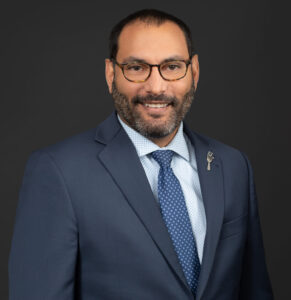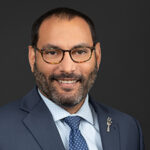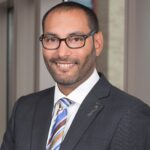With research funding cuts, Medicare/Medicaid changes and myriad insurance-payment battles, the rheumatology profession has taken a lot of hits of late. That means the ACR and its members need to “double-down on our principles” to address those challenges, according to incoming ACR President William (Will) F. Harvey, MD, MSc, FACR, associate professor of medicine at Tufts University School of Medicine, Boston. With strategies already in mind, he is eager to get his 2025–26 term started.
Dr. Harvey has been a practicing rheumatologist at Tufts since 2008, and currently serves as the interim chief of rheumatology at Tufts Medical Center, as well as deputy chief information officer for the Tufts health system, which entails overseeing its medical record system. He is also a researcher with an interest in epidemiology and clinical trial design.
He has held numerous volunteer positions with the ACR, including fellow-in-training member on the Government Affairs Committee (GAC), Young Board Member on the ACR Board of Directors, GAC chair for three years, member of the ACR Board of Directors and chair of the Registries & Health Information Technology (RHIT) Committee. In 2002, he accepted a two-year term as secretary of the ACR, followed by a year post as president elect, and he is now moving into his post as ACR president.
In an interview with The Rheumatologist (TR), Dr. Harvey explained why he remains so committed to, and optimistic about, the field, and how the ACR and its members can and must move forward despite today’s strong headwinds.
TR: Your new role as president will be a bit of a shift in your engagement with the ACR. Before we talk about your upcoming role as president, would you highlight an area that has particularly drawn you as an ACR volunteer in the past?
Dr. Harvey: Advocacy is at the top of the list. There have continued to be a lot of major advances involving the way in which physicians, and rheumatologists specifically, are reimbursed, notably the rules with which we have to interact with insurance companies and how they are able—or not able—to help us effectively treat our patients. The ACR has advocated for both patients and rheumatologists to the government, insurance companies and health systems. That advocacy work is a really important part of what the College does and it is where my interest has centered … and still lies.



